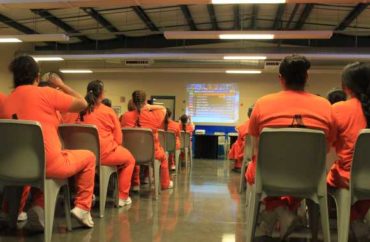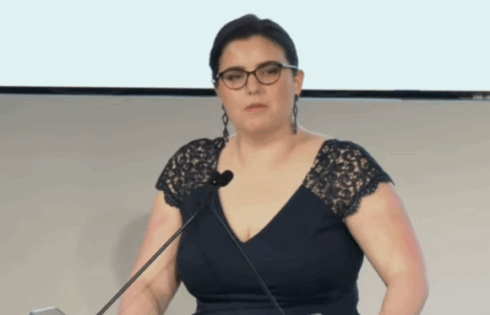
Bipartisan-backed measure seeks to reduce recidivism
Earlier this month, more than 760,000 adults in prison became eligible for federal financial aid for college courses after a nearly 30-year-old ban was lifted.
In 2020, Congress voted to reinstate access to the federal Pell Grant for students in state or federal corrective institutions, overturning portions of laws from the 1990s that had made many inmates ineligible. It was billed as a bipartisan effort backed by many along the political spectrum.
Since July 3, the Department of Education has accepted applications for the Pell Grant from incarcerated students enrolled in participating prison college programs and will approve them on a “rolling basis,” according to department officials.
The change will allow incarcerated students to access an estimated $130 million in additional financial aid per year, the Associated Press reported.
“Using taxpayer money to give college aid to people who’ve broken the law can be controversial,” AP reported. “When the Obama administration offered a limited number of Pell Grants to prisoners through executive action in 2015, some prominent Republicans opposed it, arguing in favor of improving the existing federal job training and re-entry programs instead.”
But others argue the development is a good one, pointing to statistics showing education programs provided to inmates reduce recidivism.
“Obtaining a college degree while incarcerated is one of the most impactful interventions available for incarcerated people to open new doors to sustainable livelihoods after prison,” Mneesha Gellman with the Emerson Prison Initiative Affiliate told The College Fix.
The Pell Grant, a federal subsidy, was extended to prison inmates during the 1960s. Approximately three decades later, the grant was “removed from prisons with the passage of the 1993 Violent Crime Control and Law Enforcement Act and the Higher Education Reauthorization Act of 1994,” which banned Pell grants for the incarcerated, according to the Education Department.
In December 2020, Congress voted to lift the ban. It tacked on the legislation to the $1.4 trillion government spending bill for 2021 attached to the pandemic relief bill, PBS reported.
“Research by the Rand Corp. has shown that participation in prison education programs reduces by 43% the rate at which people reoffend. The reduction in the likelihood to break the law means that for every dollar spent on prison education, taxpayers save $5 in reincarceration costs,” PBS reported.
“Prison education has also been shown to improve job prospects for those released. Children of an incarcerated person who attended college are also more likely to attend college themselves.”
The Department of Education predicts that “full reinstatement” of the program will grant eligibility to more than 760,000 individuals through fully developed prison education programs, according to a June 30 news release from the Education Department.
Participating institutions must follow the standards to implement “effective” prison education programs, such as establishing “the definition of a PEP as defined in the Higher Education Act of 1965,” outlining “application requirements for approval of PEPs,” and clarifying “the requirements and obligations of institutions, accrediting agencies, and oversight entities,” according to the news release.
Gellman of the Emerson Prison Initiative told The Fix that it has also received private funding from individual donors, foundations, and Emerson College since it was established in 2017.
“When people leave prison with college degrees, they tend to get jobs that allow them to become contributors to the state,” Gellman told The Fix. “Though the ethics of providing free college to people in prison while folks on the outside still have to pay may be uncomfortable, taken as a larger package of social transformation, college in prison is a net gain for society as a whole.”
“Pell funding is one step in the direction to ensure the financial feasibility of this goal,” she said.
MORE: Colo. prison education bill would reduce sentence length for college completed
IMAGE: Rebekah Zemansky/Shutterstock
Like The College Fix on Facebook / Follow us on Twitter






Please join the conversation about our stories on Facebook, Twitter, Instagram, Reddit, MeWe, Rumble, Gab, Minds and Gettr.